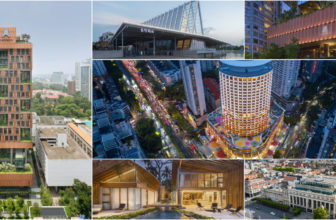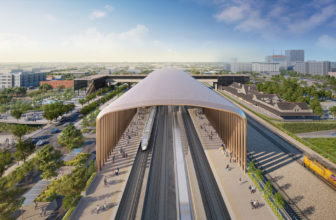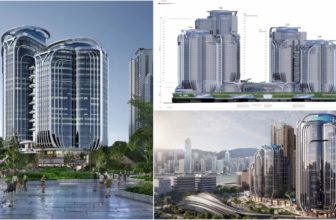Dominated by New York’s Iconic Domino Sugar Factory, Brooklyn’s waterfront has been renovated through the introduction of a new public park. The US architectural landscape firm, James Corner Field Operations delivered a design inspired by the site’s rich history and the community. The project aims to build interest in the history of the site while reconnecting New Yorkers to the East River waterfront.
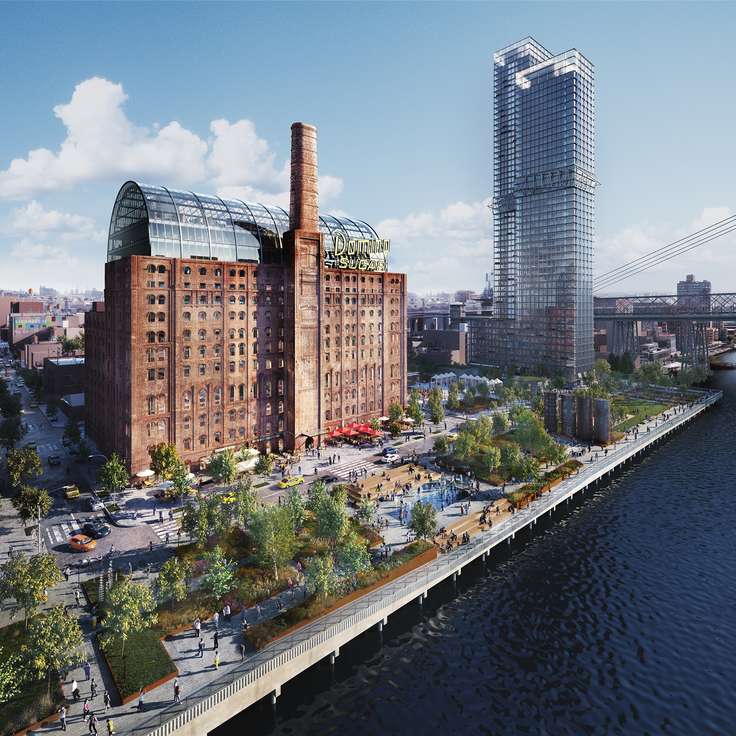
Domino Sugar Factory rendering via Two Trees
Offering a view of Manhattan’s skyline and bridge, a 1,200-foot-long esplanade runs along the river connecting all public spaces. Activities featured within these open spaces are distributed based on their categorization as either “Active” or “Passive”. Moreover, the whole park is raised above FEMA’s flood elevations, protecting it from possible future flooding.
[irp posts=’168921′]
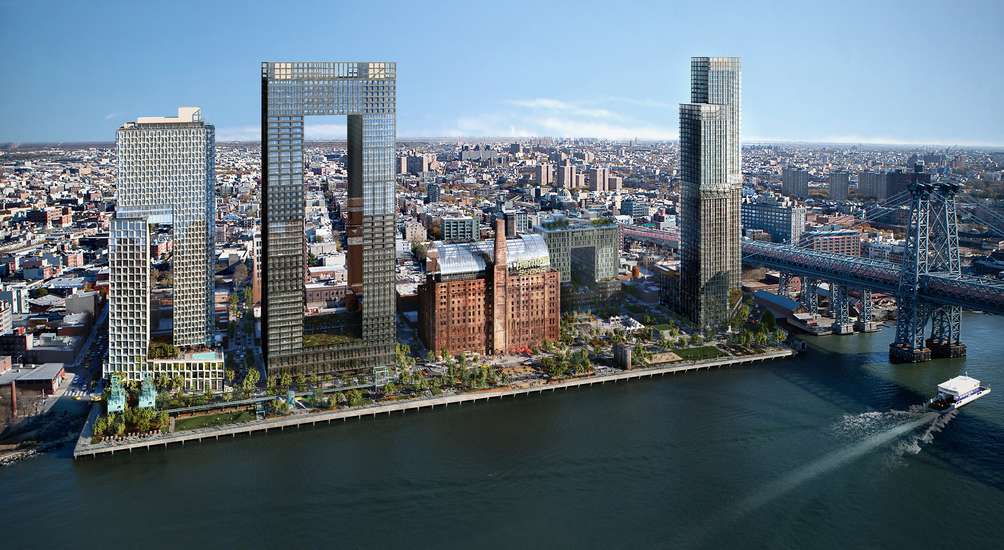
River view of Domino Sugar Factory via Two Trees
The Northern Side of The Domino Sugar Factory Park:
On the northern end, passive activities include the Artifact Walk which capitalizes on both the site’s history and the value of the Sugar Refinery Building. The Walk also features salvaged machinery and items from the refinery, including 30 pieces of salvaged factory machinery, 21 original columns from the Raw Sugar Warehouse, 585 feet of crane tracks, and four 36-foot-tall tanks that were once used to collect syrup during the refining process. Leading to the Artifact Walk is a passive recreation park that comprises a number of passive activities: picnic areas, a sloping lawn, food kiosks, a Japanese pine garden, an urban beach, and a play space inspired by the sugar refining process.
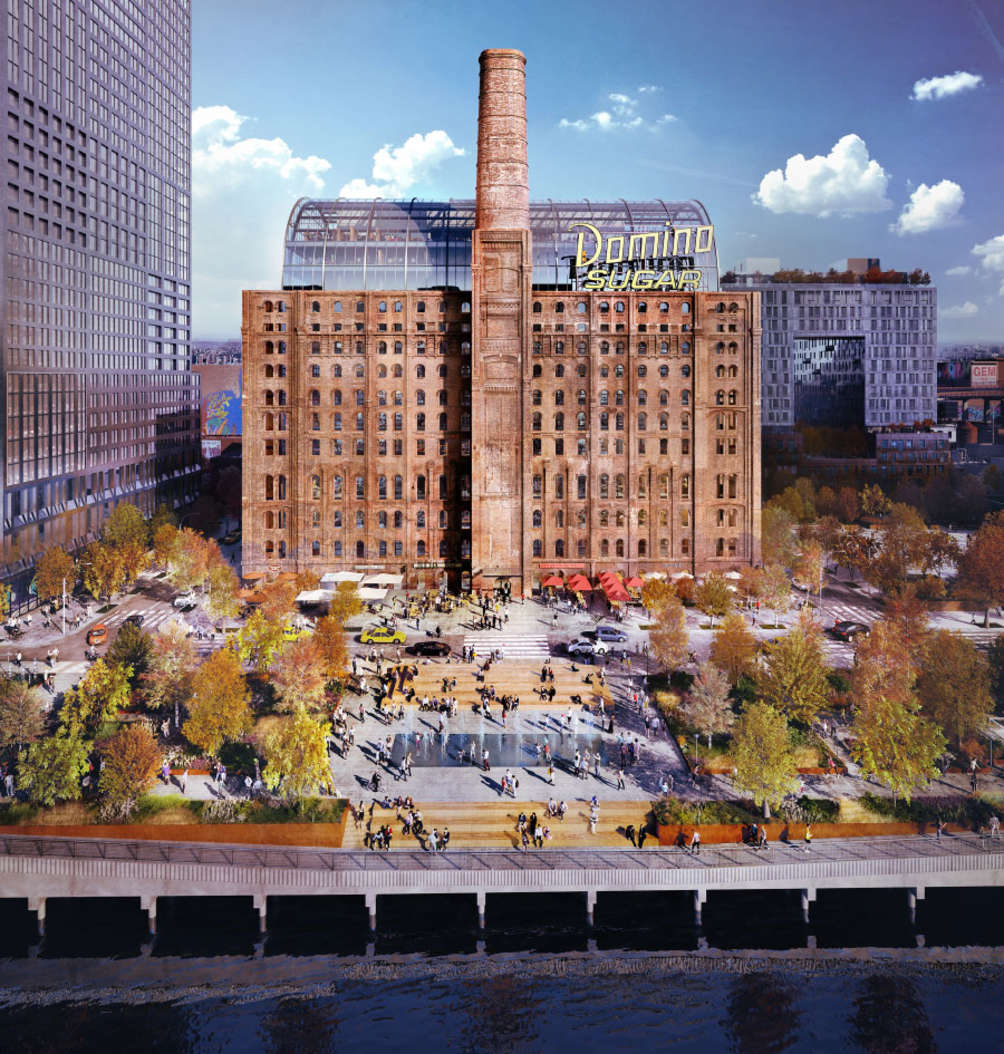
Water Square via Two Trees
The Southern Side of The Domino Sugar Factory Park:
On the other hand, the southern side of the park houses a variety of active amenities, which includes a dog run, flexible sports fields, a volleyball court, and two Bocce Ball Courts. Finally, there is the center which features five separate gathering spaces and includes the syrup tank garden, a recessed area with steps for river-viewing, a four-tiered seating area, and a central water feature.
The park has been open to the public since June 2018. While it is owned by Two Trees, it is subject to the New York City Parks Department’s maintenance standards. With a platform dotted by factory artifacts, an industrial-style playground, and long-dormant cranes painted in seafoam green, the reference to the site’s industrial past is hard to miss.


